By Dan Wennerlind
Find Your Next Hunting Trip Here At HuntTheNorth.com
Everybody has heard of one story or another of wild game gone to waste, whether it be a pile of dead snow geese left in a dumpster somewhere or a whitetail deer thrown in the ditch for the coyotes to eat. Is this a punishable crime and what are the consequences? We had a chance to sit down with a local Wisconsin State Conservation Warden in a question and answer type setting and find out exactly what “Wanton Waste” means in Wisconsin and what makes it such a travesty to hunters everywhere.
Question #1: What is the “Wanton Waste” law in the State of Wisconsin?
Answer: As it states in the Wisconsin regulation book- “23.095(1g) General prohibition. No person may damage or attempt to damage any natural resource within the state”. Describing the word Damage. – “Damage” means to commit a physical act that unreasonably destroys, molests, defaces, removes or wastes. This could mean damaging and/or wasting everything from a tree to a black bear as this law is written.
Question #2: What is the penalty in Wisconsin for damaging a natural resource?
Answer: If found guilty of “Damaging” a natural resource in the state of Wisconsin the standard fine is only $186.00. However, if found guilty of an “intentional kill” of a protected form of wildlife such as a Trumpeter Swan the fine can be as high as $5,000 and the revocation of one’s hunting privileges for 3 years.
Question #3 Do the Wanton Waste Laws vary from state to state?
Answer: Yes. Every state interprets the meaning of this law differently and it is up to each individual to know each state’s law. For instance in the state of Montana it is illegal to “breast out” a bird such as a goose and throw the carcass away. Legally all edible parts of the bird must be used. This law is highly enforced in the state of Montana. There are variations of this law in every state and province across North America and it is up the each hunter to abide by the law where he/she is hunting.
Question #4 Is the hunter who takes his game home, cleans it and puts it in the freezer for two years and then throws it away any different than the hunter who takes his game home that morning and tosses it into the garbage whole?
Answer: Ethically I don’t believe there is much difference between the two. Under certain circumstances such as a freezer that breaks down in which case the food goes bad, exceptions are acceptable, but for the hunter who just can’t get enough hunting each fall and stock piles more game than he can or plans to eat, there is not much difference. Each hunter has a moral obligation to make sure that he / she is able to use the game harvested each year himself or to make arrangements for all of the game harvested to be given away or used in some way, to be considered an ethical hunter. Many hunters provide some of their legally harvested game to local food shelves.
Question #5 What are some of the common examples of Wanton Waste that you have recently run across?
Answer: In my area the main sources of wasted game are whitetail deer. Each year we will find full deer carcasses thrown in the ditch after the hunting season. Many of those deer were never butchered but just dumped in the ditch to go to waste. We also get a few calls of deer still hanging in trees well into the spring from the past fall’s hunting season. The deer were gutted but never butchered. From time to time in the spring we also find piles of dead snow geese in the ditches- most likely from hunters returning from a spring snow goose hunting trip out west. We also find remnants from many ice fishermen who carelessly throw small bluegills and crappies on the ice and never take them home. All of which are ethically wrong, even the small pan fish that get wasted are detrimental to our natural resources, as insignificant as it may seem to some.
Question #6 Do you run into situations where the public, including farmers intentionally kill “Nuisance” animals because they are detrimental to them in some way? And what do you recommend in that situation?
Answer: Unfortunately it is not uncommon to hear about the public intentionally killing “Nuisance” animals. There is a Federal funded agency that will investigate and address these nuisance animal issues so people should not have to kill the animal. The right thing to do is contact us and we can work with them on the issue. We do run into situations each year where we will find a targeted nuisance species killed from time to time. One example would be lakeshore owners who will kill the Canada geese that summer on their shorelines. In situations like that we are able to site the guilty parties with a ticket for taking game out of season. That standard fine is $248.60.
Question #7 What about the honest hunter who is walking out of the marsh with a limit of ducks and his dog picks up a cripple bird on the way back to the truck or the turkey hunter who accidentally shoots two birds with one shot because he did not see the second bird? Are these hunters guilty as well?
Answer: There are always going to be honest mistakes made, we are only human. But it’s what we do after a mistake has been made that defines our character. Many hunters are so worried about what will happen if the Conservation Warden catches them doing something wrong that they end up doing many strange things that they would not normally do. The best thing to do in a situation like that is to call your local Conservation Warden and explain the situation. Hunters have a responsibility to identify their targets and what is beyond their targets. If they are not sure they should not pull the trigger. If your dog picks up a dead duck you did not shoot it is probably best to leave it there. If you walk out of the marsh with too many birds because your dog brought you one you did not shoot some questions are going to be asked by the warden. We are people to and will use our best judgment. If an honest mistake has been made we will work with the hunter to do what is right.
Question #8 Are there any blatant laws that are broken regarding the harvesting of game that you are able to enforce and work hard to do so?
Answer: Yes! The most important laws that we try and enforce are the bag limits. Those include daily and possession limits. If we run across a situation where a hunter has blatantly stock piled an over possession limit of birds or fish for example in a freezer we work very hard to catch him in the act and rely on cooperators to help us identify those subjects. In Wisconsin, we find some fishermen who take too many limits of fish in a day or will fish all week on vacation and go home with well over their legal possession limits. During the fall, we find a few archery hunters who shoot numerous bucks and find others to tag them. In Wisconsin, it is only legal to harvest one buck with your bow and arrow. Some unethical hunters and fisherman just get greedy sometimes and we hope the public cares enough to get involved to help us catch those types of violators.
Question #9 When situations such as the ones described above happen and make it to the news what does that do to us as hunters in the public eye?
Answer: It really hurts our sport and tradition. My experience as a Conservation Warden has shown that most hunters and fisherman are very ethical and do the things that are best for the resource. As with anything else, there are always those that don’t follow the rules and make us all look bad. Those are the ones we hope to catch. As Wardens we are hunters and fishermen too. When the public hears about incidents like these it gives all sportsmen a bad name and feeds the fire for those who want to stop hunting and fishing all together. We live in a time when it is more important than ever to get young people involved in the outdoors. Teaching them the right way early on in their lives is very important.
As you can see the Wanton Waste Law in Wisconsin is very broad which makes it tough for a Conservation Warden to enforce the law as it relates to the actual waste of game derived from an activity such as hunting or fishing. It must be proven in a court of law that the intent of an activity was actually to destroy or waste a state natural resource.
Since this law is so broad it does allow the opportunity for hunters in the state of Wisconsin to conceivably enjoy a successful morning of hunting, take their game home, let them sit in the garage for 3 days to spoil and then throw it away without any consequences from the law. But has a law still been broken? In this hunters’ mind- Absolutely! It may not be a law punishable by the state but as hunters and fisherman across the country we have a moral obligation to the natural resources that we enjoy taking from so freely, to utilize and take care of the game we harvest. It goes back to a moral backbone of human nature that one must eat what he kills! Are there exceptions to the rule? Sure there are, under certain circumstances if a legitimate accident should arise where all precautions have been taken but a bird or animal spoils there is not much one can do but those who are just to lazy to clean their game and allow there harvest to go bad or those who had no intention of eating or utilizing the game they harvested in the first place, those people have no business participating in the outdoor traditions many of us have grown to cherish so much. We as hunters and fisherman have a moral obligation to make sure that the game we harvest goes to good use and to make sure that it does not end up in a dumpster somewhere rotting away! This is also a very important tradition that needs to be embedded in the children of today so that they can understand the value of each and every creature that is harvested whether it be a sunfish or a bear… all wildlife need to be treated with the same respect no matter how big or small.
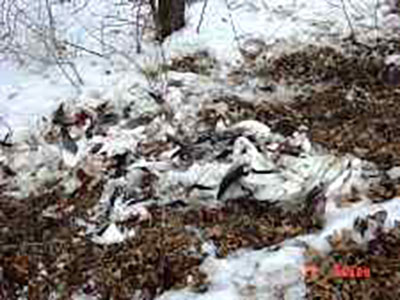
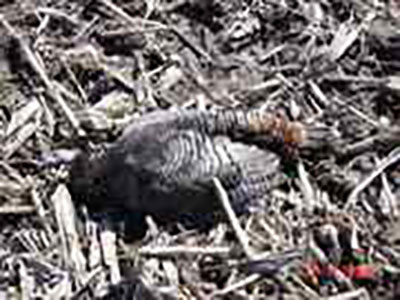
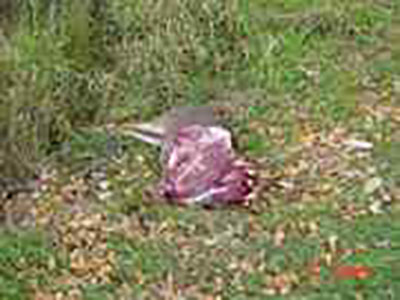
Find Your Next Hunting Trip Here At HuntTheNorth.com

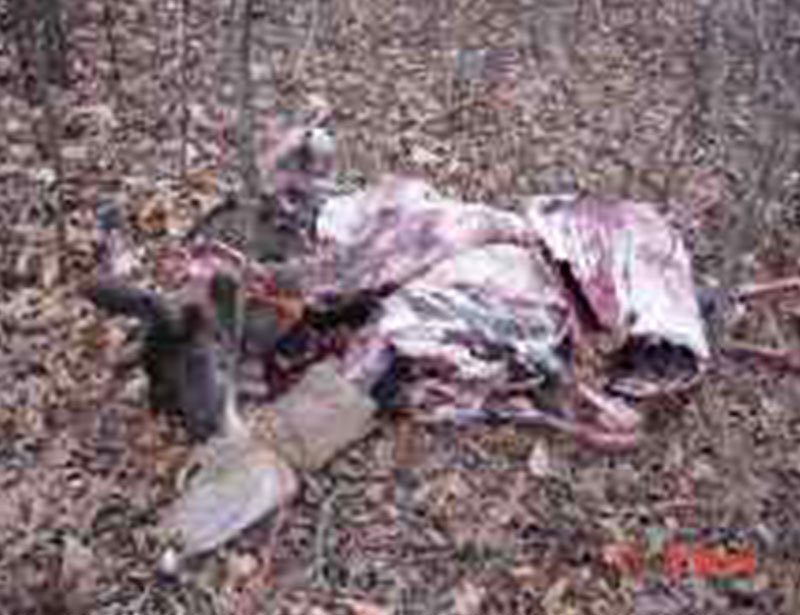
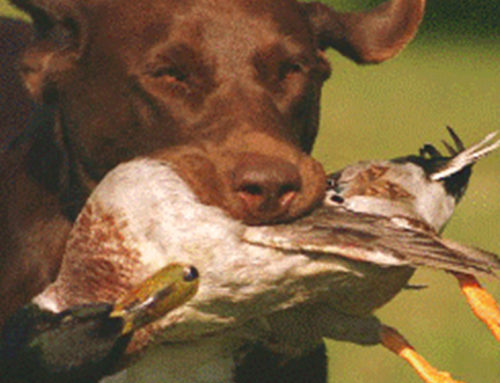
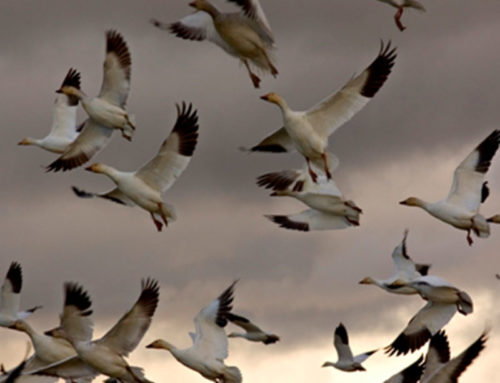
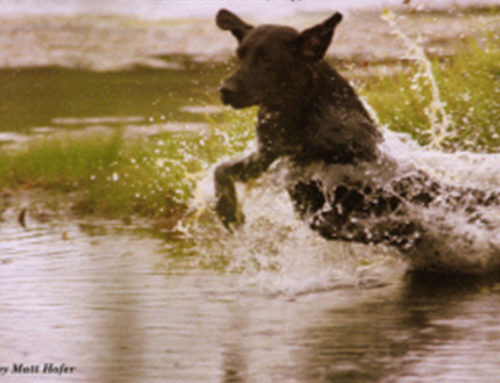
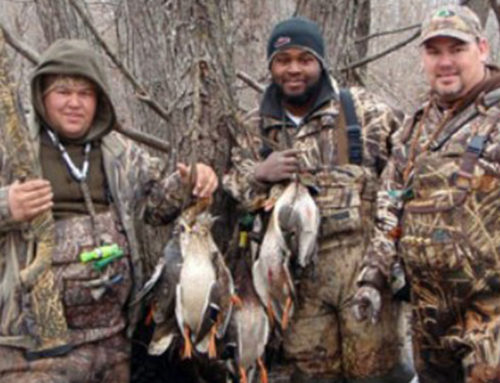
Leave A Comment